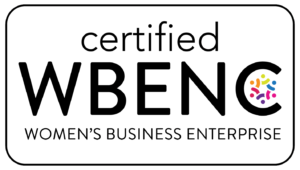Emotional Intelligence. What is it?
Successful leaders have the ability to connect with others. This ability is often labeled as charisma, however, those charismatic traits are strongly correlated to emotional intelligence (EQ). Let’s briefly review the idea of emotional intelligence and what it looks like.
Oxford Dictionary defines emotional intelligence as “the capacity to be aware of, control, and express one’s emotions, and to handle interpersonal relationships judiciously and empathetically.” In a nutshell, EQ is our ability to connect with others utilizing our understanding of the emotions of others, as well as our own.
Harvard Business Review further breaks down EQ into four components:
- Self-awareness
- Self-management
- Social awareness
- Relationship management
Self-awareness: I’m able to quickly and accurately ascertain my feelings.
This looks like: I have a tight deadline for an upcoming project and as a result I’m feeling stressed which is causing me to be irritable and impatient with myself and others.
Self-management: Because I’m aware of my emotions (good, bad, indifferent, obstinate…), I manage my behaviors in a positive manner.
This looks like: I know my project deadline is stressing me out and making me irritable and impatient. I look for ways to work more efficiently, practice stress reduction techniques, and prioritize my responsibilities. I take responsibility for having self-control.
Social Awareness: I’m able to accurately ascertain the emotional state of others. I understand and respond to their needs.
This looks like: My colleague who normally greets the team every morning goes straight to his/her desk without speaking to anyone. I gently approach my colleague to say “hello” and prepare to listen to what they may want to share (if anything).
Relationship Management: Because I’m aware of my emotions and the emotions of others, I’m able to successfully manage interpersonal experiences.
This looks like: An agenda item in today’s sales meeting is about the deadline for an important project. After the roundtable discussion about the project, it is clear the work was not evenly distributed among team members. I notice frustrated body language from a few colleagues and I respectfully suggest how to equitably re-distribute the tasks based on individual expertise. Management and the team agree with my suggestion and now everyone is visibly more relaxed and upbeat.
EQ is so much more than “having a great personality”. An emotionally intelligent individual is highly conscious of his or her own emotional states and is tuned in to the emotions that others experience. Emotional signals from within oneself and from one’s social environment could make one a better friend, parent, and yes, a better leader.
So, now that we know a little more about EQ and how to manage it for ourselves, let’s go out there and make it a great day !




Leave a Reply